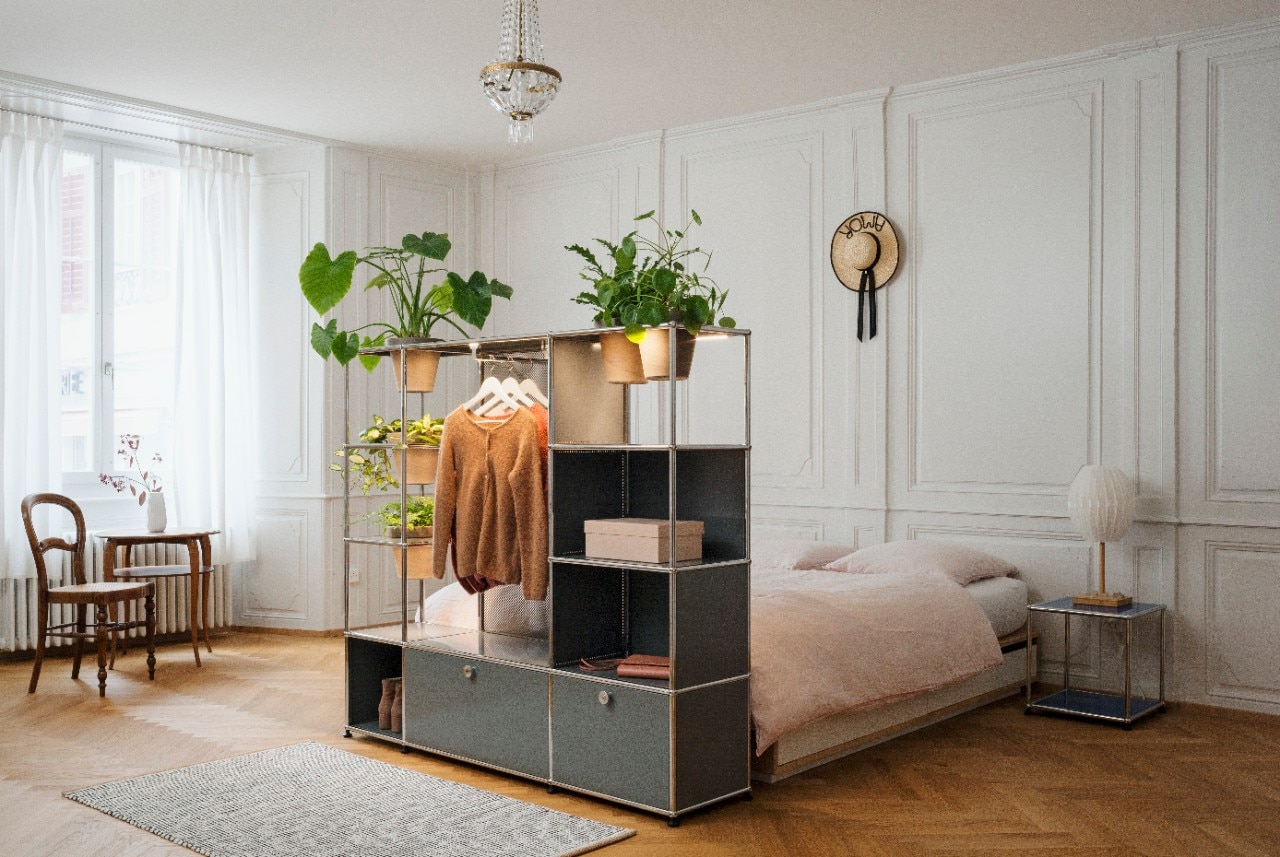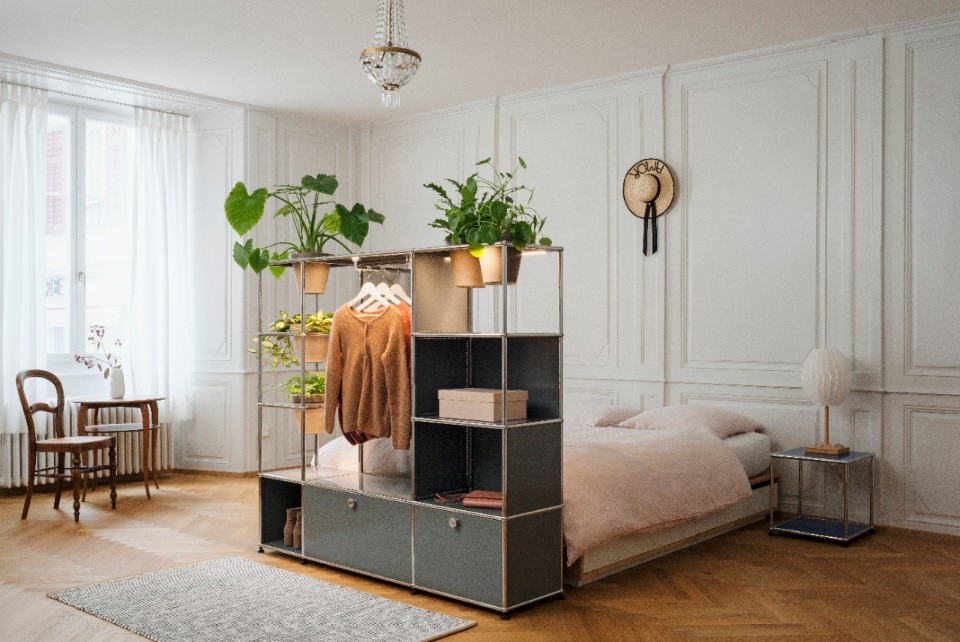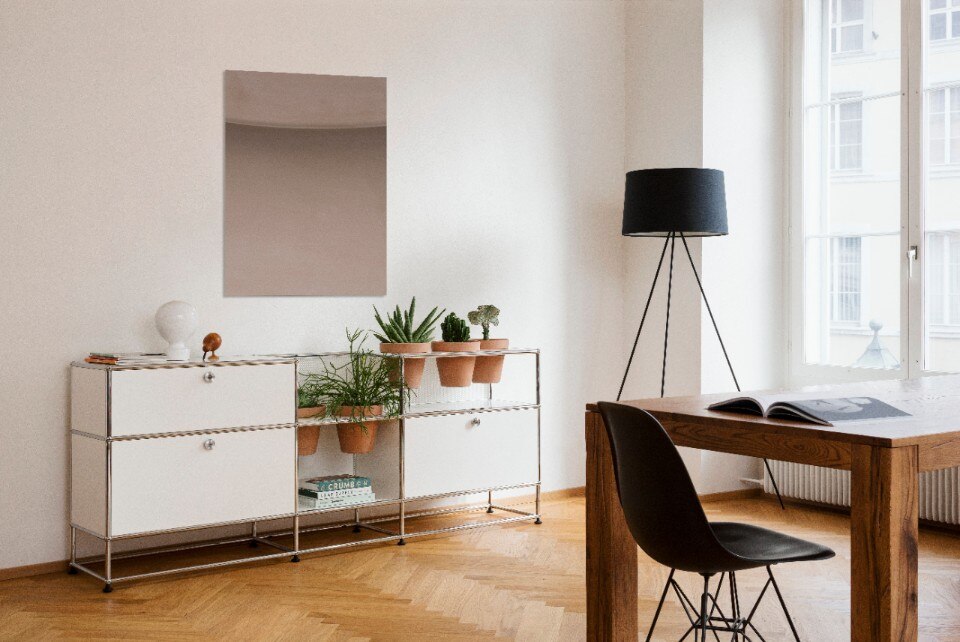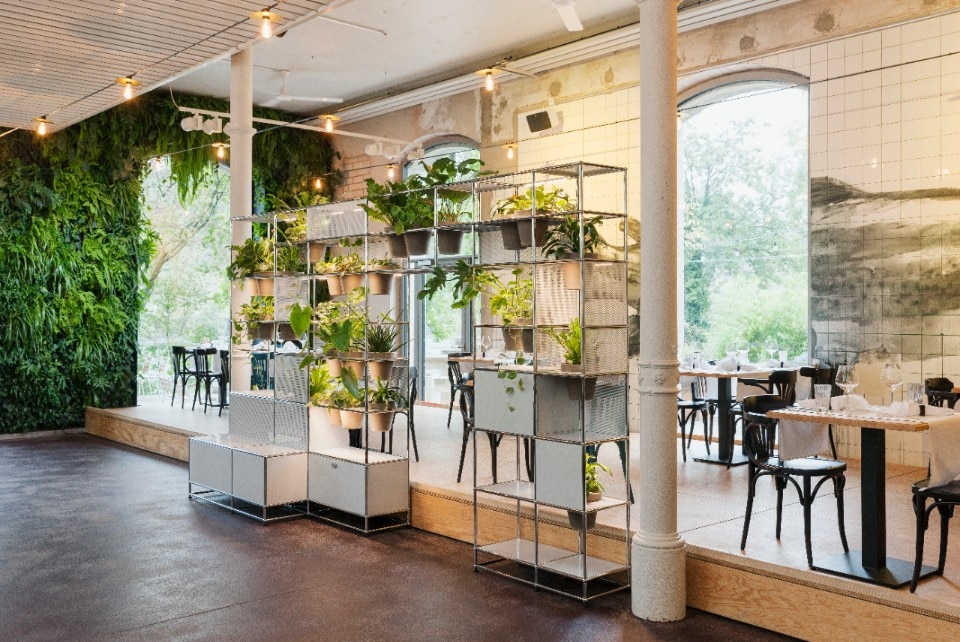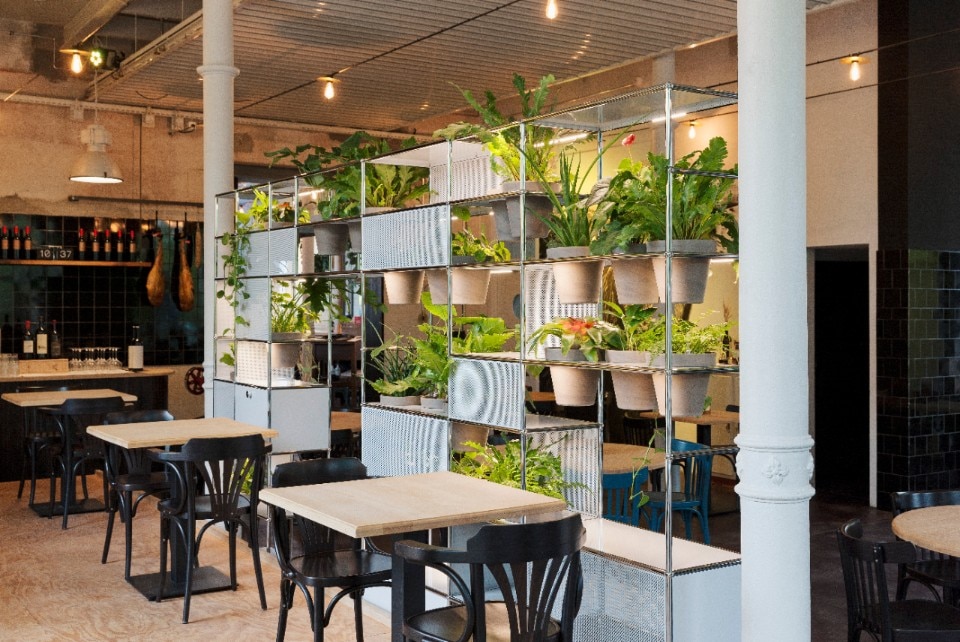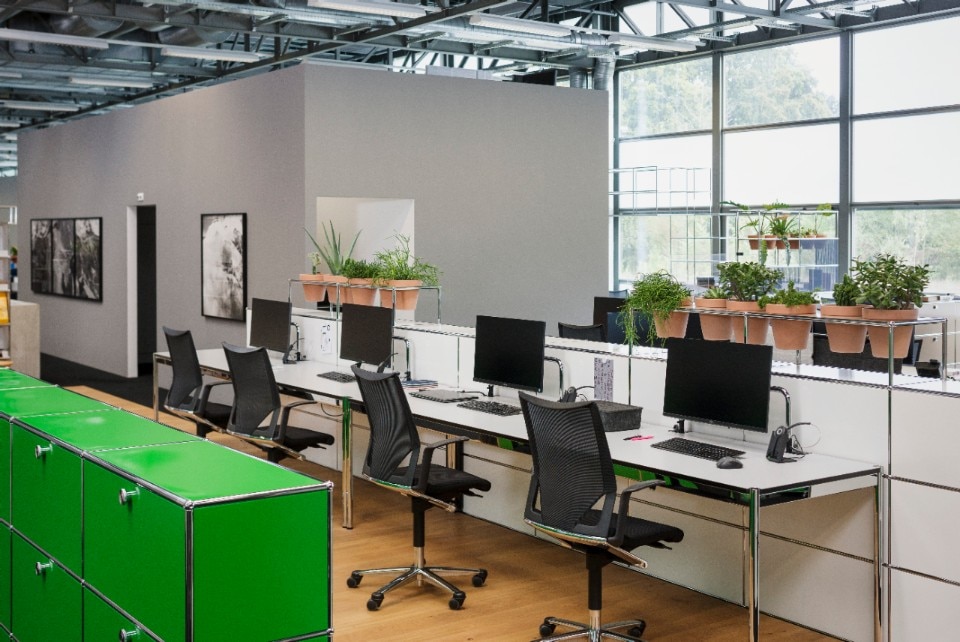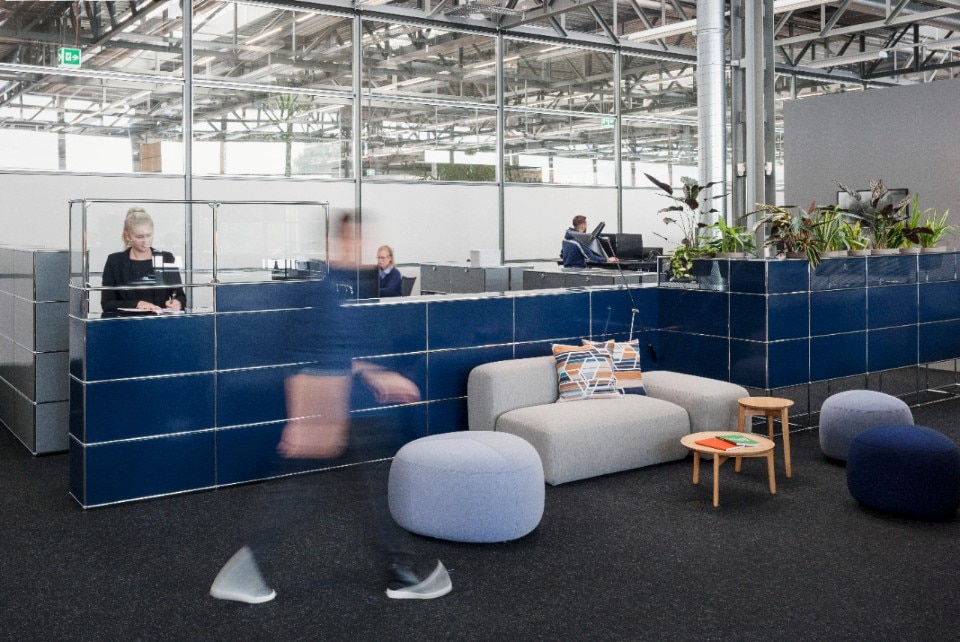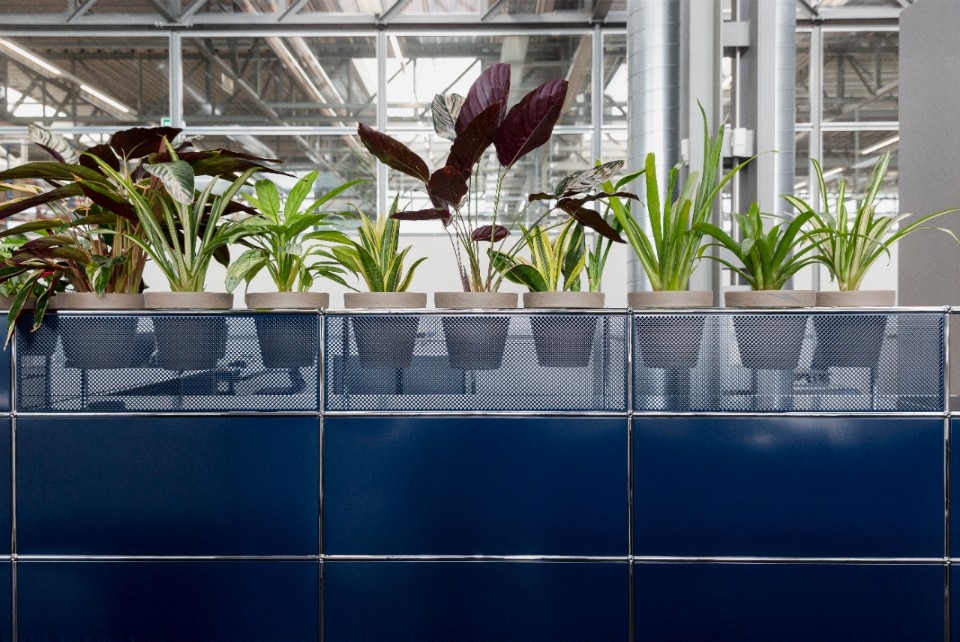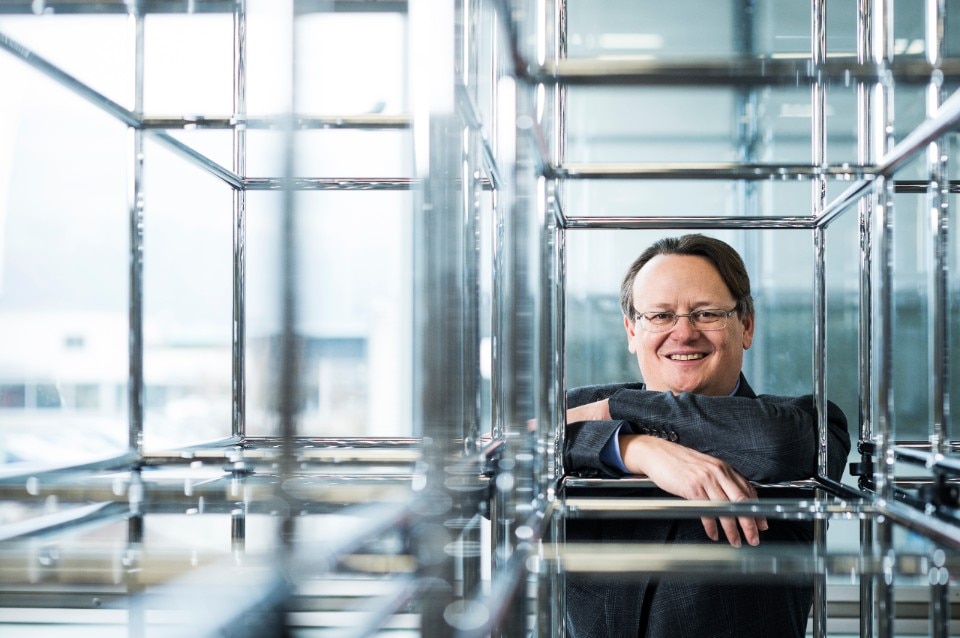USM Haller furniture systems are designed to fulfil the needs of home, work and public spaces. The chrome tubular structure of the system designed by architect Fritz Haller is instantly recognisable, as are the colour options USM offers to customise interiors. Design quality combined with versatility has enabled the brand founded by the Swiss Schärer family in 1885 to become a design classic. Today, the fourth generation is represented by current CEO Alexander Schärer. We met him to talk about the company’s present and future.
What strategies have you adopted to reduce USM Haller’s environmental impact?
Sustainability is a core asset. We have been committed to reducing our environmental impact for many years now, even before sustainability became a topic of discussion as it is today. Our products can be easily reused and recycled because of the components they are made of and their longevity. Speaking of reuse, there is an important second-hand market for USM Haller products. The case of offices furnished with our modules comes to mind which, in the event of closure, are reintroduced to the market and purchased by consumers who choose USM Haller for their homes. From a price point of view, it is very advantageous, because the final cost can be around 20 or 30 per cent less than the list price of the new product.
Measuring and optimising the environmental impact of a company requires a long-term view. What are USM Haller’s future goals?
In order to reduce our environmental impact, we are focusing on two aspects: the product and the production cycle. We are working to reduce CO2 emissions to zero, for example, by modernising our heating and cooling systems and using solar panels to produce clean energy to be used in production. We plan to extend this practice over the next three years: our production sites are shift-free, so we have the opportunity to use the energy produced by the solar panels directly during daylight hours.
What are the main critical issues and challenges you will face in the next few years?
As far as the product is concerned, we are aware that steel, which our furniture is made with, has an environmental impact. We need a systemic change in its production: the good news is that thanks to the use of modern technologies we are taking important steps towards the production of carbon neutral steel. As online commerce has grown in recent years, one of the challenges in logistics is to reuse packaging and to adapt its characteristics to the distances the product has to travel in order to preserve it.
“A world of plants” is the system that allows plant pots to be integrated into USM Haller modules to create green spaces in the office, at home or in public indoor spaces. In your opinion, how can nature help us improve indoor spaces?
Having more plants in the home or office can have a very positive effect on our well-being. With this project we wanted to make our contribution so that more and more spaces are furnished with natural elements to create better places to work and meet.


